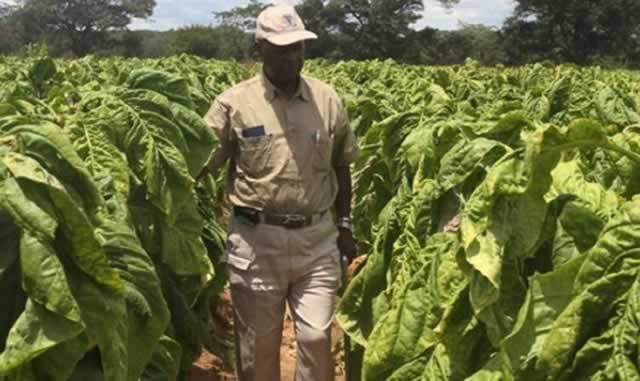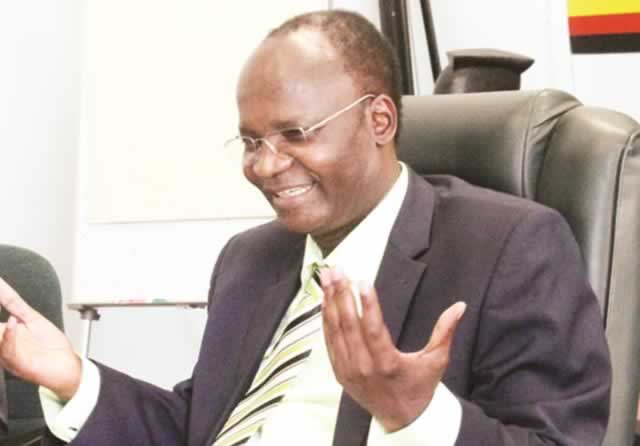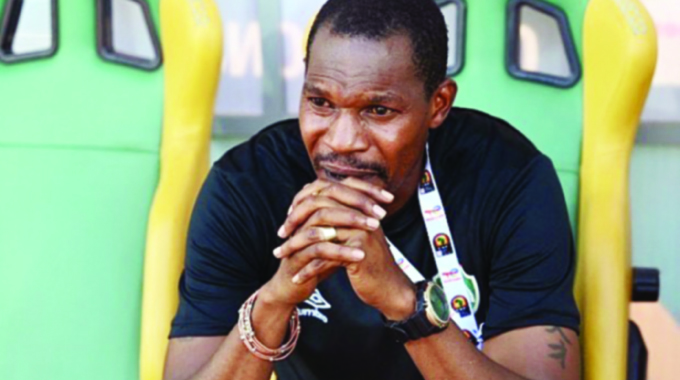‘I’ll always feel honoured’

 Grace Chingoma Senior Sports Reporter
Grace Chingoma Senior Sports Reporter
HE was the first skipper of the Warriors, representing their independent nation for the first time in an international match and 35 years later, Sunday “Mhofu” Chidzambwa, says he still feels very proud of that defining moment at Rufaro.
The four-team Independence Cup, which featured Zambia, Mozambique and Malawi, was the first official football tournament for the Warriors and Chidzambwa led his men to an emotional 2-1 victory over Chipolopolo in the final.
Thirty five years on, Chidzambwa remains an iconic figure in Zimbabwean football — the only coach to lead a local football team to the final of a continental club tournament, when Dynamos came within 90 minutes of being crowned African champions in 1998 and ending the Warriors’ lengthy wait for a place at the Nations Cup finals.
Such is his influence that the last coach to take charge of the Warriors, Ian “Dibango” Gorowa, even suggested this week that Chidzambwa should be considered for a possible return to the Warriors to help them qualify for the 2017 Nations Cup finals.
For now, Chidzambwa spends his time trying to develop young footballers although he says that he hasn’t turned his back on serving competitive football, the only barrier right now being the ban imposed on him by ZIFA for his alleged role in the Asiagate saga.
Chidzambwa has constantly denied any role on the match-fixing case and the fact that FIFA have refused to endorse his ban in the past four years, making him eligible to work anywhere outside Zimbabwe, appears to support his position.
As Zimbabwe today celebrates 35 years of Independence, Chidzambwa — who usually doesn’t give media interviews — agreed to speak to The Saturday Herald and revealed that, leading his country in that inaugural tournament at Rufaro, remains the defining moment of his career.
“The Independence Cup was our first tournament. It featured our national team, Zambia, Mozambique and Malawi. The games were played at Rufaro during Independence Day celebrations when Bob Marley came here,” said Chidzambwa.
“It was a great feeling.
“It was very special and it’s something that I will never forget in my life. It’s something that stays with you for the rest of your life and I am proud that I was chosen as the leader of that team in such a very significant tournament.
“We were so excited by Independence, we didn’t know what being independent meant and there was just so much activity with comrades coming from the bush and we were the first national football team.
“Everyone was just happy.
“Even the way we were playing it was just unexplainable. I think we played as if we were possessed by something that we didn’t know. The crowd was huge at Rufaro and I don’t think that any national team has played at Rufaro as packed as it was that day.
“We played Mozambique in the semi-finals and we won 6-0 with Shackman (Tauro, late) scoring four goals. Zambia beat Malawi in the other semi-final.
“We beat Zambia 2-1 with Mandigora (David) scoring the first goal and Shacky scored the winner. That team had the players such as goalkeeper Frank M’kanga, Ephert Lungu, Oliver Kateya, Fresh Chamarenga, David Muchineripi, Robert Godoka, Tauro, Max Tshuma, Joseph Zulu, Edward Katsvere and Wonder Phiri.”
The technical team of that ground-breaking team had John Rugg as the head coach and he was assisted by Mickey Poole and Shepherd Murape.
Sunday remembers that the core of that Independence Cup team became the national side for the next three years, when he bade farewell to football after breaking his leg.
“It was basically the same team. But we had a very good junior policy back then with many players such as Stix (Stanford Mtizwa), Joel (Shambo, late) Stanley Ndunduma (late), Archford Chimutanda (late) coming in from the Under-20s and graduating into the team,” he said.
“I was in the national team since 1975.
“I remember we were banned by FIFA and we were just playing countries that were also banned like South Africa or some teams which used to come from England and Germany.
“Back then (in 1975) Daniel Chikanda was the national team captain, George Shaya took over the captaincy until 1979. I took the armband in 1980 as Shaya had retired from playing football.”
Zimbabwe got re-admitted by FIFA after Independence and featured in the World Cup qualifiers where they lost 2-1 in Yaounde against Cameroon before beating them 1-0 at Rufaro.
“It was our first campaign in the World Cup, after Independence, and I remember playing against Roger Milla in Cameroon but he didn’t come to Harare for the other leg,” said Chidzambwa.
“We were a very strong team back then and you can’t compare that team to the one that we have now because the talent was there among the experienced players and also among the players who were coming through the system.”
Five years after Independence, his younger brother, Misheck, made history again by becoming the first captain to lift silverware with the Warriors when Zimbabwe won the CECAFA Senior Challenge Cup at Rufaro in 1985.
Sunday’s coaching journey started in 1985 and was one of the assistant coaches in a technical team headed by Poole that beat Kenya to win the CECAFA Senior Challenge Cup.
Sadly, while the first five years of Zimbabwean football promised a lot, the future looks bleak as two steps forward are usually taken before three steps backwards are made.
Sunday believes he has gone through a lot in his career but, for all the success and the low moments, nothing will ever beat that day when he led the national team, for the first time in Independent Zimbabwe, as the skipper of the nation.
He believes Zimbabwe football can rise again because the country is blessed with some good players, who keep emerging on the scene all the time, and also feels that, in 35 years, the country should have achieved more than just qualifying for two Nations Cup finals.







Comments